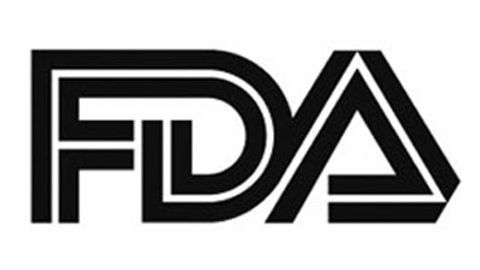FDA Approves Oral Relugolix for the Treatment of Men With Advanced Prostate Cancer
The FDA has granted approval to oral relugolix as treatment of patients with advanced prostate cancer.

The FDA has granted approval to oral relugolix (Relumina) as treatment of patients with advanced prostate cancer, according to a press release.1
“Today’s approval marks the first oral drug in this class and it may eliminate some patients’ need to visit the clinic for treatments that require administration by a health care provider,” said Richard Pazdur, M.D., director of the FDA’s Oncology Center of Excellence and acting director of the Office of Oncologic Diseases in the FDA’s Center for Drug Evaluation and Research. “This potential to reduce clinic visits can be especially beneficial in helping patients with cancer stay home and avoid exposure during the coronavirus pandemic.”
The approval comes based on findings from the phase 3 HERO clinical trial, which demonstrated the superiority of relugolix over standard of care leuprolide acetate (Lupron), according to findings presented during the 2020 American Society of Clinical Oncology (ASCO) Virtual Scientific Meeting.2 An update from the company, in September 2020, also showed that the agent demonstrated similar rates of castration resistance-free survival compared with leuprolide for an additional secondary end point.3
The randomized open-label parallel-group multinational clinical trial evaluated the safety and efficacy of relugolix compared with leuprolide as treatment of men with androgen-sensitive prostate cancer. The study included 934 men who received at least 1 year of continuous androgen deprivation therapy (ADT), and they were randomized 2:1 to receive either a single loading dose of relugolix at 360 mg followed by a 120 dose daily or leuprolide acetate in a 3-month depot injection.
The primary end point of HERO was to achieve and maintain serum T-suppression to castrate levels (< 50 ng/dL) through 48 weeks, while secondary end points included castration rates at day 4 and day 15, profound castration (< 20 ng/dL) rates at days 4 and 15, prostate-specific antigen response rate at day 15, and FSH levels at week 24.
The response rate among those with castrate levels (≤50 ng/dL) that were sustained from weeks 5 through 48 was 96.7% with relugolix (95% CI, 94.9-97.9). The response rate among those who received leuprolide acetate was 88.8% for a difference of 7.9% (95% CI, 4.1%-11.8%; P <.0001). Castration was achieved with relugolix as early as day 4.2
All secondary end points demonstrated the superiority of relugolix as well. The median T-levels were 270.76 ng/dL among those evaluated for testosterone recovery in the relugolix arm versus 12.26 ng/dL in the leuprolide acetate arm 90 days after treatment discontinuation.
The incidence of major adverse cardiovascular events was lower with relugolix compared with the control, occurring, respectively, in rates of 2.9% versus 6.2%. Adverse events (AEs) occurring in at least 10% of patients included hot flush in 54.3% of the relugolix arm versus 51.6% of the control arm, fatigue in 21.5% versus 18.5%, constipation in 12.2% versus 9.7%, diarrhea in 12.2% versus 6.8%, arthralgia in 12.1% versus 9.1%, and hypertension in 7.9% versus 11.7%, respectively. Diarrhea was only observed in grades 1/2 and did not lead to treatment discontinuation in the study. The FDA notes that these toxicities may impact pituitary gonadotropic and gonadal functions diagnostic testing.
Study investigators also noted that the treatment adherence with the oral relugolix therapy was more than 99%, which was similar to what was observed with injectable leuprolide.
The castration resistance-free survival rate was 74% with relugolix versus 75% with leuprolide acetate, although this did not achieve statistical significance (HR, 1.03; 95% CI, 0.68-1.57; P =.84).3
To be included in the study, patients had to have a histologically or cytologically confirmed diagnosis of adenocarcinoma of the prostate and be good candidates for 1 year of continuous ADT. They also had to have an ECOG performance status of 0 or 1 at the time of both initial screening and baseline, a serum testosterone level of ≥150 ng/dL and a serum PSA concentration of >2.0 ng/mL (2.0 μg/L). Patients were ineligible to enter the study if they required chemotherapy or surgery, had brain metastases, or had a history of surgical castration. Patients were also excluded if they had been treated with GnRH analog, another form of ADT, or had prior systemic cytotoxic treatment for prostate cancer.
References
1. FDA approves first oral hormone therapy for treating advanced prostate cancer. News release. FDA. December 18, 2020. Accessed December 18, 2020. https://bit.ly/2WplaeG
2. Shore ND, George DJ, Saad F, et al. HERO phase III trial: Results comparing relugolix, an oral GnRH receptor antagonist versus leuprolide acetate for advanced prostate cancer. Presented at: 2020 ASCO Virtual Scientific Program. Abstract 5602.
3. Myovant sciences announces results of additional secondary endpoint of castration resistance-free survival from phase 3 hero study of relugolix in advanced prostate cancer. News Release. September 29, 2020. December 18, 2020. https://bit.ly/3kZ66i1